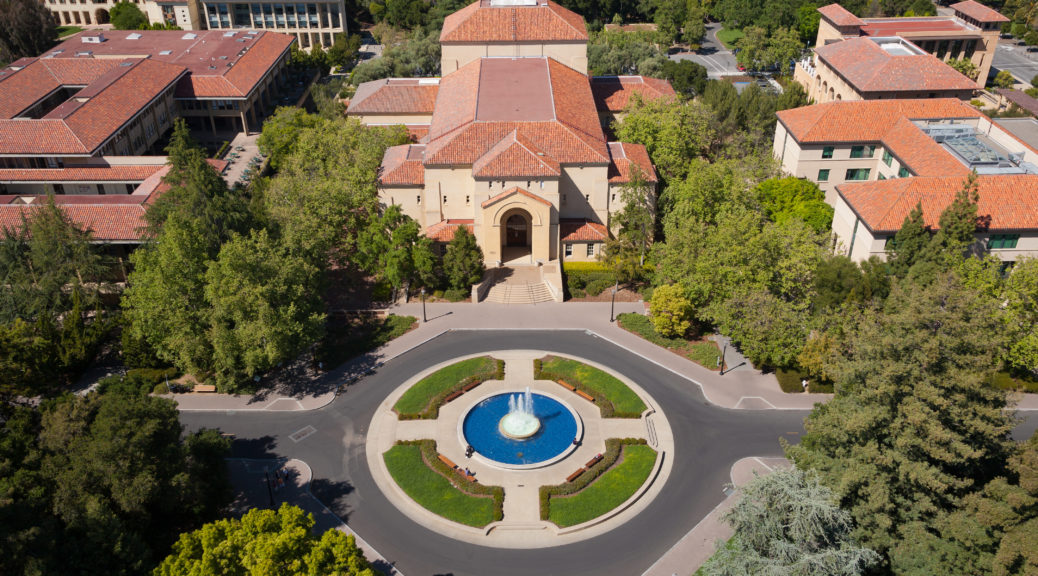From Stage 3. Early adolescence – The Thespian at the Oasis, Stanford overview, and Stanford quarters.
I entered Stanford as a Freshman in September of 1962, and was placed in Honors English. One of the summer readings they assigned all incoming freshmen was The Aims of Education by Alfred North Whitehead. I was totally entranced by the vision of becoming a torch bearer for the exalted Western intellectual tradition.
Q1 Autumn 1962-63, Sep-Dec 1962
ENGL 1S Freshman Spec, 3, B
ELSP 23 2yr Span Rdg, 3, B-
MATH 41 Anal Geom Calc, 5, C
HIST 1 Western Civ, 4, B (GPA 2.7)
As a Freshman I was eager to find models to emulate. For better or worse, what drew my interest and attention most strongly was the ongoing card game in the first floor Common Room in my dorm, just a short walk from my room. The players were current and former residents, many of whom were undergraduates who were in their fifth year (or more) of limping toward completion. They had colorful nicknames: The Bear, the Bug, the Pro, Dirty Ed Bogus, etc. They didn’t seem to go to class, they appeared to just play cards in the common room. It was a non-academic counterculture, that resonated with the rebel sub-personality percolating in the background since I read The Way of Zen and On the Road in high school. (See SA1, #1.5 and #1.6 for that reading).
#2.1 of SA2. Stanford
Q2 Winter 1962-63, Jan-Mar 1963
PE 153 Weight Train, B
ENGL 2S Freshman Spec, 3, A-
MATH 42 Anal Geom Calc, 5, B
ELSP 25 2yr Span Comp, 2, C+
HISTORY 2 Western Civ, 5, A- (GPA 3.4)
Q2 I had my best GPA at Stanford. But then…
Q3 Spring 1962-63, Apr-Jun 1963
PE 153 Weight Train, C
HIST 3 Western Civ, 4, D-
ENGL 3S Freshman Spec, 3, I
MATH 43 Anal Geom Calc, 5, I
ENGL 75 The Novel, 4, D+ (GPA 0.5)
Spring Quarter of Freshman year everything fell apart. The worst was English 7 – Introduction to the Novel. With all my “background” reading I hadn’t read any of the assigned novels. They were all huge, and for some reason I foolishly didn’t avail myself of any Cliff Notes or any other study aid. I just struggled through the first long novel, falling behind, and felt my dream of being a college English professor slipping away if I couldn’t even get through the freshman novel course. My tunnel vision made me feel totally trapped and going under. Assuming a stance of defiance and rebellion, my book report for English 3C on Graham Greene’s Brighton Rock, which I didn’t read, was an attempt at a breezy tone critiquing the mechanical superficiality of academic life. The TA who ran our section gave me an F on the paper and said I should submit it to the Stanford Daily. I was on my way to dropping out after one year.
In the background during Spring Quarter was Fraternity Rush. It barely made it into my consciousness. Then Wayne McCormick and Glenn Nolte told me they were going to a Kappa Alpha Rush party, did I want to come along? Seemed like another party so I went. I heard KA was a “Southern” fraternity and vaguely knew that they didn’t admit Jews. I didn’t feel like that affected me because I “wasn’t really a Jew”. I was wrong. The subtle message for me was my two buddies were getting in and there was no way I was. I was shocked but suppressed and denied any feeling of rejection. But I think that was the tipping point that decided I was dropping out and going “on the road”.
#2.2 of SA2. Stanford
Near the end of Freshman year, Spring 1963, when I was thinking about how to drop out, we had a party at the home of Dr. Wilfred Stone, an English professor who was the Faculty Resident for Stern Hall. It was the first time I had ever met him. It was a very tweedy cocktail party that engraved in my mind a picture of the alcohol soaked future I could look forward to as a humanities academic. I told him I was about to go off to Berkeley to visit some old high school friends and I was thinking that would be part of my dropping out. He didn’t seem too concerned and said something like, “Well, if that’s what you want to do I think you should do it.” My Stanford transcript for the first quarter of the following year just has the one word “Leave”.
#2.6 of SA2. Stanford
